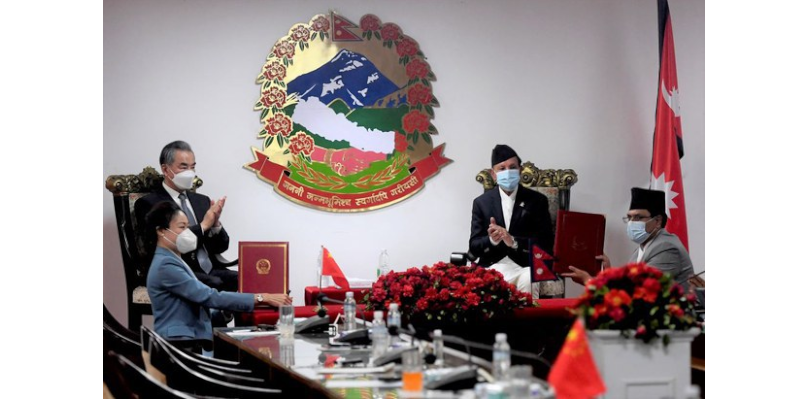Dharamshala, 30th March: Following Nepal’s confirmation of a US development grant, China warned Nepal this month against “intervention from outside forces,” as China-linked projects in the nation continue to stagnate, according to media sources. The warning came during Chinese Foreign Minister Wang Yi’s visit to Nepal on March 25-27, less than a month after Nepal’s parliament accepted a $500 million no-strings-attached US aid to develop electric power lines and upgrade roads in the impoverished Himalayan country.
The Millenium Challenge Corporation Nepal Compact (MCC-Nepal), signed by Washington and Kathmandu in 2017, was eventually ratified by Nepal on Feb. 27 after repeated delays in the country’s parliament.
Last week, Chinese Foreign Minister Wang Yi paid a three-day visit to Nepal in response to a sequence of events that China considers to be detrimental to its interests. A push for BRI projects such as a railway line between Kerung and Kathmandu and a transmission line (despite Nepal’s lack of enthusiasm), fulfillment of promises made by President Xi Jiping during his October 2019 visit, and support for development projects based on “Nepali people’s aspirations” were among the offers Wang made to Nepal.
Wang stated that China supports Nepal’s efforts to pursue “independent domestic and foreign policies.” However, according to a March 28 report by the India-based ANI online news service, Wang Yi indicated in Kathmandu last week that “foreign involvement” in Nepal’s affairs may now jeopardize both China and Nepal’s “fundamental interests.” This comment contradicts what they said previously and now, demonstrating that China’s assistance to Nepal is merely cosmetic and that its intentions are quite different. According to experts, Wang Yi’s words in Nepal show Beijing’s rising anxiety that Kathmandu may no longer be able to rely only on China for development help.
At the same time, he sent out a message stating that if any internally or externally inspired activities were directed against China from Nepal’s territory, China would become actively involved, but that China would stand by Nepal in defense of its sovereignty and right to self-determination on internal issues against any outside moves. Tibetan refugees are one of the biggest anti-China protesters in Nepal. This essentially demonstrates that China is buying Nepal and that Nepal is losing its right to internal self-determination as a result of Chinese money. The irony is that China had advised Nepal not to ratify the $500 million US grant, referring to it as a “Pandora’s box,” while China is approaching Nepal with its own Pandora Box.







Leave a Reply